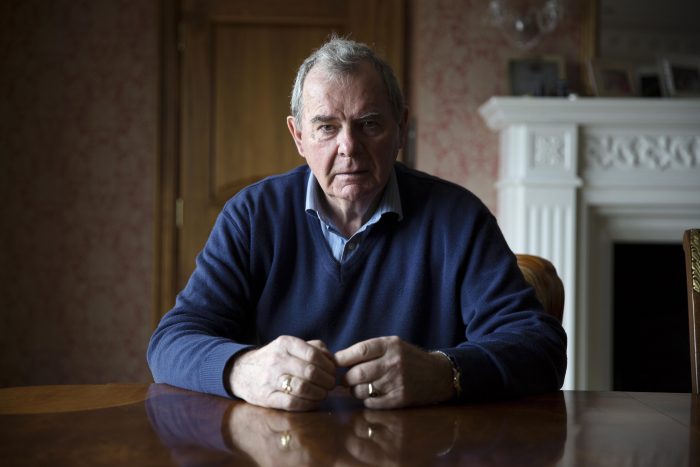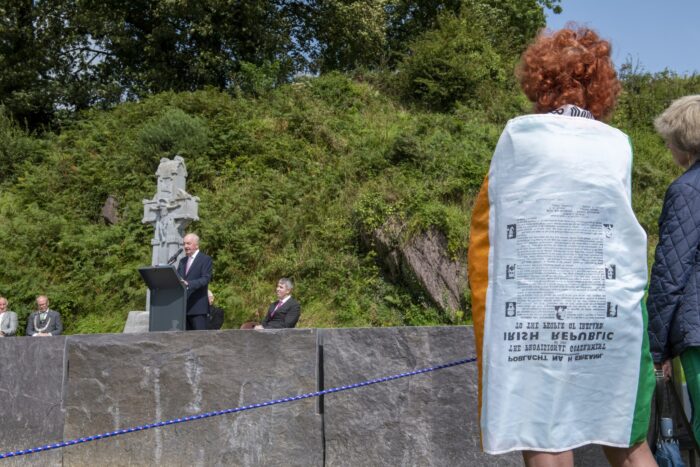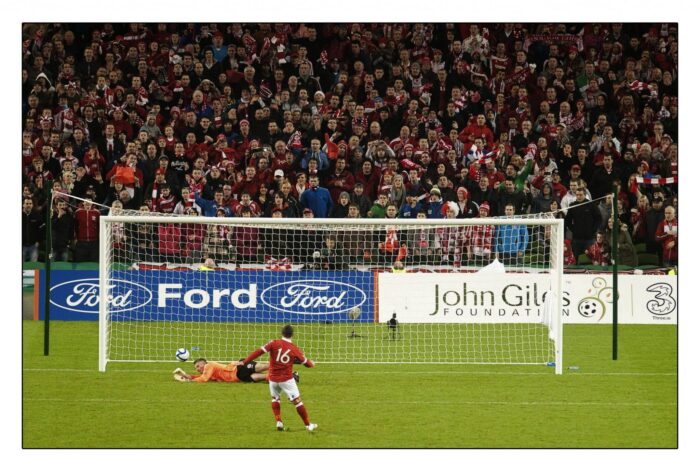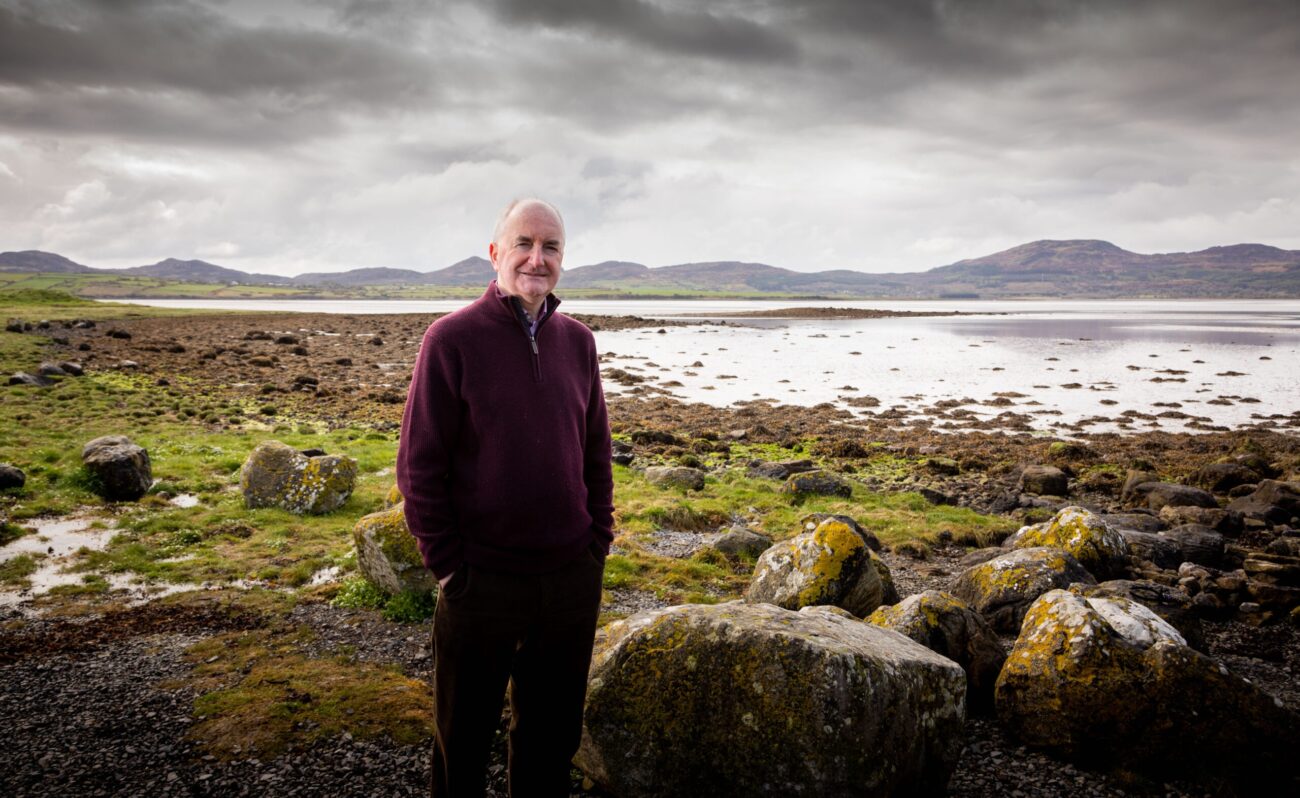In the past week, we have seen a 33-year-old second-term TD elevated to one of the most important offices in the State. Jack Chambers evidently has the trust of his party leader, but his promotion to minister for finance represents a massive play by Micheál Martin.
So too is his acquiescence to Michael McGrath’s request to be nominated as Ireland’s next EU Commissioner. A budget beckons, to be quickly followed by a general election, McGrath would have been central to both.
The reshuffle is a generational shift in Fianna Fáil, but it is also a significant political gamble, even if, for Martin, it is a calculated one.
Meanwhile, industrial strife reigned at Aer Lingus. Flights were cancelled. Insults were traded by unions and management. The customers suffered. The Aer Lingus dispute is emblematic of the broader challenges facing Ireland in 2024. As the country emerges from the turmoil of recent years, we’re seeing the complex interplay of factors shaping the labour market and the economy, something Stephen explained last week.
RTÉ unwrapped a new five-year strategy, while TDs rose in the Dáil to give a standing ovation to Natasha O’Brien, who has spoken out so articulately and so bravely about the fully suspended sentence for a serving soldier who beat her unconscious.
I could have written about any of those things in my weekly summation.
But my mind keeps coming back to our friend and colleague Tommie Gorman, who died so suddenly last week.
Tommie was the lynchpin of our weekend coverage, an anchor who brought knowledge and expertise to his columns. His death, at the age of just 68, has shocked us to our core.
We have tried to honour him as best we can. Thomas teased his way through Tommie’s political coverage, tracing how his deep understanding of the enduring fragility of peace in Northern Ireland transpired through many of the columns he wrote on the site over the past three years.
Tom wrote about Tommie’s infectious sense of the possible, and how he helped so many people, including both Tom and I, in so many ways. Yesterday, we published my thoughts on his journalism, his personality, and his sense of time and place.
In truth, none of it can do justice to the man himself.
He wrote for us for just three years, but he left behind a vast body of work. In this piece today, I want to highlight a different selection.
Much of his archive gravitates around politics, particularly the relationship between Ireland and Britain, and the dynamics of the North. His understanding of Anglo-Irish relations was second to none; he saw nuance where others saw straight lines.
But, today I want to select different pieces, pieces that do not centre around politics or the events of the day.
One of Tommie’s reasons for joining The Currency was the freedom to write on other areas, on subjects he felt passionate about. When I think of Tommie’s articles, these are the ones that come to my mind.
They show he was far more than just a political commentator. He understood politics because he understood life. And this comes across so deeply in his non-political writings.
Tommie Gorman: Beyond stone and shite, and accepting what’s gone is gone

On Christmas Eve, 2022, we published an essay by Tommie that beautifully weaved together many diverse and disparate strands – from his own experiences in childhood to the border economy of the past, to people who he met in Brussels as European correspondent for RTÉ.
Ostensibly, the article was about Sean Quinn. Tommie was one of the first people to first interview the industrialist, and as ever, it was Tommie who scooped the interview with Quinn as his empire unravelled.
RTÉ had broadcast a three-part series on Quinn just weeks before. Skilfully, Tommie traced some of the characters in the backstory, from the family of the man who would subsequently help revive the Quinn manufacturing business to the story of how Mary McAcleese met her husband, and how that connection helped the process of peace on the island. In Ireland, everything is connected, and Tommie knew those connections.
The piece ends poignantly:
“Seán Quinn turned 75 on December 5. His greatest challenge, maybe an impossible one, lies ahead. And the choices rest with him. Does he continue, fixated on a sense of grievance, or can he accept that what’s gone is gone?
“His most lasting legacy to those who love him, worth many times more than €5 billion, could be that he made peace with his neighbours. And with himself.
“There is no bond to compare with the tie generated within the nest. It creates life. It sustains it. And often, it defines it.”
Tommie Gorman: From Glenties to Béal na Bláth and beyond

Whenever I spoke to Tommie, he also seemed to be plotting his next adventure, his next thing. After retiring from RTÉ, he became a regular on the speaking circuit, happy to accept invitations to promote good causes or good debate.
The appeal for organisers was obvious. Tommie could play both sides. He could moderate a discussion, asking insightful questions of politicians and policymakers. Or, he was more than happy to answer them, bringing his decades of experience and insights to audiences. He often wrote about those experiences in his articles for The Currency.
One piece stands out.
In July 2023, he helped arrange a session on “Ireland – The future” for the MacGill Summer School, cajoled into the effort by his friend Joe Mulholland. “It was a request that couldn’t be refused,” he wrote.
Just weeks later, he delivered the oration at the annual Michael Collins commemoration in Béal na Bláth. It was a massive honour for Tommie to give the oration, and in advance, he took time away from his column to ensure that his speech was pristine and his delivery perfect.
“When I was asked to deliver the oration at Béal na Bláth, I thought it was a case of mistaken identity. But the process of writing the speech got me thinking about the opportunities and challenges that face us on the island – and much more besides.”
The piece ends with the following thoughts:
“In Christy Moore’s song, North and South of the River, there is a killer line:
‘There is no feeling so alone
‘As when the one you are hurting is your own.’
“It was true in the time of Patrick MacGill. It was true in the circumstances that led to Michael Collins’s death one hundred and one years ago. And it is certainly true and relevant as we face our responsibilities as builders.
“Noting what is happening in Russia, in China, in the United States with its tainted political and judicial structures, we are fortunate to be facing our challenges as Europeans.”
Tommie Gorman’s full Beal na Bláth address can be accessed here.
Tommie Gorman: The loneliness of the goalkeeper

One of Tommie’s enduring passions was Sligo Rovers. He was heavily involved in the club and spent much of his recent time working on a project to develop its grounds and facilities (true to form, whenever we spoke, he asked for updates on the performance of my own son’s underage football team, and tracked their performance better than I did).
In 2022, he told the story of Ciaran Kelly, a former goalkeeper with Sligo Rovers who earned a place in Irish sporting history in November 2010 when he saved four consecutive kicks in the penalty shoot-out against Shamrock Rovers.
But behind Kelly’s heroics, there was a deeper, more complex story about the tiny margins between winning and losing and the enormous burdens not often discussed in relation to sport.
Kelly had spoken poignantly about another penalty, one he conceded and which the opposition scored, costing them the FAI Cup.
“It took me a long time to deal with it. Mental health was not something that was spoken about back then. I would never have spoken about it. I didn’t fully understand what was happening. During those months there were moments of real depression, negative thoughts, feeling the world was against me. I couldn’t talk about it. I felt I would have been mocked or frowned upon,” Kelly said.
The article was published after a video of the Republic of Ireland women’s team singing a pro-IRA chant in their dressing room went viral. Tommie brought it all together in his piece.
He wrote: “‘It’s All About Inches’ is one of the most memorable lines of actor Al Pacino in the movie, Any Given Sunday. He plays the role of a coach, seeking to inspire an American football team. A version of Pacino’s speech has been used countless times in school and club dressing rooms throughout the 32 counties.
“Ultimately, in sporting contests, to create winners there have to be losers. Ciarán Kelly is an example of someone who has known both days.
“Those who lined up to castigate some of the Irish women’s soccer team for their misjudgements during recent moments of exuberance might take note of how Ciarán Kelly suffered in silence.”
Tommie Gorman: Hope, mortality, and the battle against a complex form of cancer
“In the ebb and flow of a life, once in a while something happens that catches you by surprise. It lifts the spirits to a different, better place. During 2023 one such moment came, without warning, on November 18 in the Oriel House Hotel in Ballincollig, Co Cork.”
So began an essay by Tommie last December that examined, hope, mortality, and the future.
It begins with reportage from the annual gathering of a support group for patients with neuroendocrine cancer and their families, the Netpatient Network.
It ends with the ongoing work to treat this rare form of cancer. In between, it is a beautiful description of Tommie’s own battle with cancer, from his diagnosis to securing treatment.
He wrote: ”In March 1993 my mother lost her mother, a month short of her 101st birthday. Ceara’s mother was coming from Cork to Sligo for Christmas, thrilled that the youngest of her four daughters had started a family. Our hope was that the presence of new life would provide some comfort for the loss of loved ones and make the connection with the timeless nature of family bonds.
“The holiday took an unexpected twist. A nagging pain during the final days in Ireland led to my hospital admission on return to Belgium. Things that I didn’t see coming followed: a cancer diagnosis, a close-up introduction to the concept of mortality and a range of experiences that have influenced my life in the three decades since.”
Cancer changed his life. But it certainly did not define him. Far from it. In fact, he sought to turn the tables on cancer, working to advance new treatments and to raise awareness. He spoke to countless people who had been diagnosed with cancer, providing constant support and encouragement.
In recent times, Tommie would occasionally take a week off to deal with illness. But he remained so upbeat, so optimistic that his death served as a body blow. This piece, outside of the paywall, is a testament to that optimism and that belief, and the pragmatism that underpinned it.
Tommie Gorman: A country struggling with the reality that people seek a better life

Two months ago, tents and their occupants were removed from outside the International Protection Office on Dublin’s Mount Street as Britain and Ireland fell out over the movements of refugees between the two jurisdictions.
I called Tommie to see if he wanted to address the issue in his column. I was unsure of what he would write, or how he would approach the topic. He understood the politics of the issue better than most; his work in Europe had exposed him to the issue of migration, while his time in Belfast ensured he understood the delicate issue of the border.
And this came across in his column. The issue of migration is contentious, and often used to serve political agendas.
Tommie, however, looked at the politics and the policies through the prism of people. It was what he did best. He began by telling the story of Peter Sutherland who, in his later years, became a passionate campaigner on migration.
He followed this up with the story of the EU, and how it had grown and grown over the decades, primarily because people were searching for a better life.
The article ended: “In those final years of his life, Peter Sutherland spoke what he believed was the unvarnished truth to power. People seek a better life. For many of those fleeing poverty as well as war, Europe is considered a place of opportunity.
“Ireland may be on the outer edge of the European Union but it has become one of the EU’s wealthiest member states. If Ireland’s economic growth is to continue, it will require a workforce to sustain it. The workers will require houses and schools and transport systems and health services. The new cohort of housebuilders will themselves require houses.
“Regardless of what combination of parties forms the government in Dáil Eireann, managing growth is the challenge of our times. To date, we are struggling to deal with what is an unavoidable new reality.”
Tommie Gorman: Christmas is different again this year but love is still the tie that binds

In 2021, Tommie wrote his first Christmas essay for The Currency. The country, and the world, were in lockdown, grappling with a pandemic that had changed everything and caused so much suffering.
But in a highly personal essay, drawing from his own family and his own experiences, he explained in his own style how the human spirit had survived, and how love had thrived.
In a way, the words that ended the essay will be how I will remember Tommie:
“It’s a ground rule of existence that death is never far away. Trouble has a habit of intervening when all seems to be going swimmingly. We strive to go about our business not cowed by that reality but conscious of it.
“The pandemic is a new iteration of intimidation and threat. It is stubborn and belligerent. As 2021 draws to a close, it seeks to open up a new front.
“The contest is wearing on the spirit.
“But in the oppressive cycle of challenge, there is the antidote of everyday examples of kindness.
“And the hope provided by younger generations. While buffeted by an unfair quota of burden, they seem better than we were at identifying and trusting what matters.”
*****
Elsewhere last week, our London Editor Michael Cogley told the story of Livingbridge, the London-based private equity firm that has invested over €90 million in Ireland to date. In an interview, founding partner Mark Advani and associate director Gareth Molloy talked about Brexit, high interest rates, and their plans for future Irish investment.
Chinese tech giant ByteDance set up 8th Note Press last year to publish e-books for gen Z and millennial readers. It has been looking for staff in Dublin. Jonathan had the story.
Private equity is pumping huge sums of money into the creation of autonomous killing machines which have no human intervention whatsoever. The practice is raising ethical questions but as long as the profits are there, it will continue, Constantin said in his column last week.


